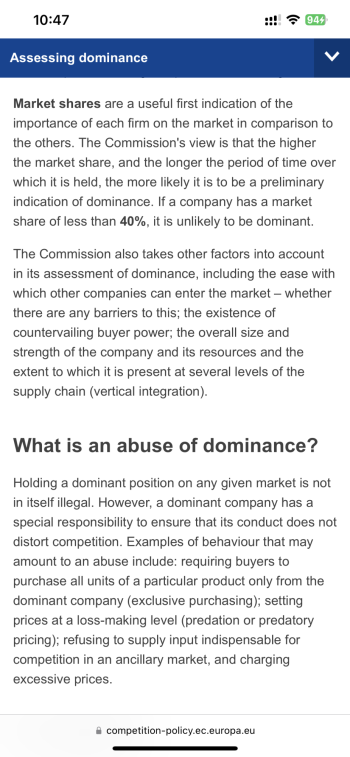The act of gatekeeping is embodied in Apple's Gatekeeper, which is a program. The app review does not mirror any gatekeeping and it is not what kept your grandma safe. What kept your grandma safe was the requirement by the OS to use signed code of verified developers which has nothing to do with the Microsoft Store, the Microsoft store only happens to apply that ruleset also.That still doesn't point to a valid criticism of software development.
The act of gatekeeping alone helps to some degree with malicious apps. We constantly suffered with my Grandma getting attacked left and right with Windows 10. Once we got her a device with Windows 10 S (Microsoft Store Only apps allowed), the attacks stopped because she could not install a random exe from the internet. App review process prevents the most basic malware and can help with a little more complex malware items. Also, said grandma also had issues with Android that was resolved when we moved her to iPhone.
That is all I said and is really something so basic it shouldn't even be questioned.
I never once implied Apple should review your entire source code.
On macOS these days you also cannot just install a random app from the internet, and it is even more challenging when it's not signed.
App review does nothing but content curation, plus making sure that the developer has no mechanisms in place to circumvent in-app purchase taxation, which I assume is their primary task these days because shareholders.
There is no software engineer screening the code which means that no security is applied, and it never will because shareholders. How hard is that to understand?
Last edited by a moderator:



